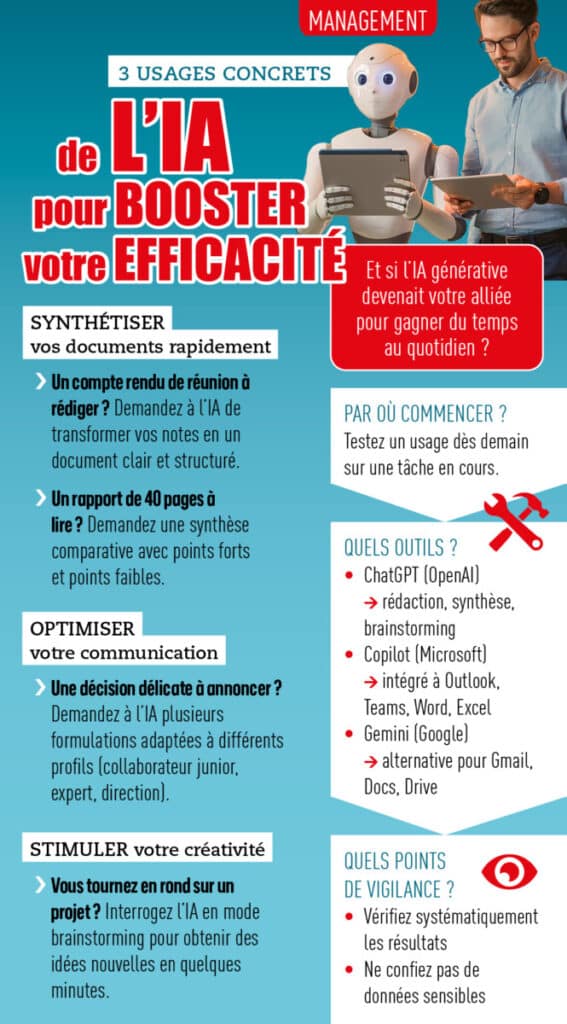What if generative AI were to become your time-saving ally on a daily basis? In a way, it's a super-assistant that can lighten your day and boost your impact. Generative AI can efficiently take care of your professional writing (meeting minutes, e-mails, etc.) in just a few minutes. Ideal for repetitive, time-consuming tasks. The result? You free up up to 4 hours a week to devote to more strategic tasks, such as leading your team and taking decisions.

But where to start? Here are a few ideas:
1/ Using AI to quickly summarise your documents
Need to write up the minutes of a meeting? Ask AI to transform your notes into a clear, structured document. Estimated time saved: around 30 to 45 minutes saved per meeting.
A 40-page report to read? Ask for a comparative summary with strengths and weaknesses.
AI doesn't decide for you: it highlights what really deserves your attention.
[Also read] What if AI became your productivity tool?
2/ Optimising your communication
A tricky decision to announce? Ask AI for several formulations adapted to different profiles (junior member of staff, expert, management).
You gain in accuracy and impact.
Estimated time savings: reduction of 20 to 30 % time spent writing.
[Training] Managers: boosting performance with AI
3/ Stimulate your creativity with AI
Going round in circles on a project? Ask the AI in brainstorming mode.
The AI will suggest unexpected angles that you can then filter and enrich.
Saving time: new ideas in just a few minutes instead of several hours alone.
A few practical tips
Four fundamental areas must be mastered if you are to navigate serenely in this environment:
Where to start ?
- Test a use tomorrow on a task in progress
What tools?
- ChatGPT (OpenAI) → writing, summarising, brainstorming
- Copilot (Microsoft) → integrated into Outlook, Teams, Word, Excel
- Gemini (Google) → alternative for Gmail, Docs, Drive
What are the points to watch?
- Do not entrust sensitive data
- Systematically check the results
Generative AI is an assistant, not a pilot. Stay in control of your decisions to avoid technological dependency.






